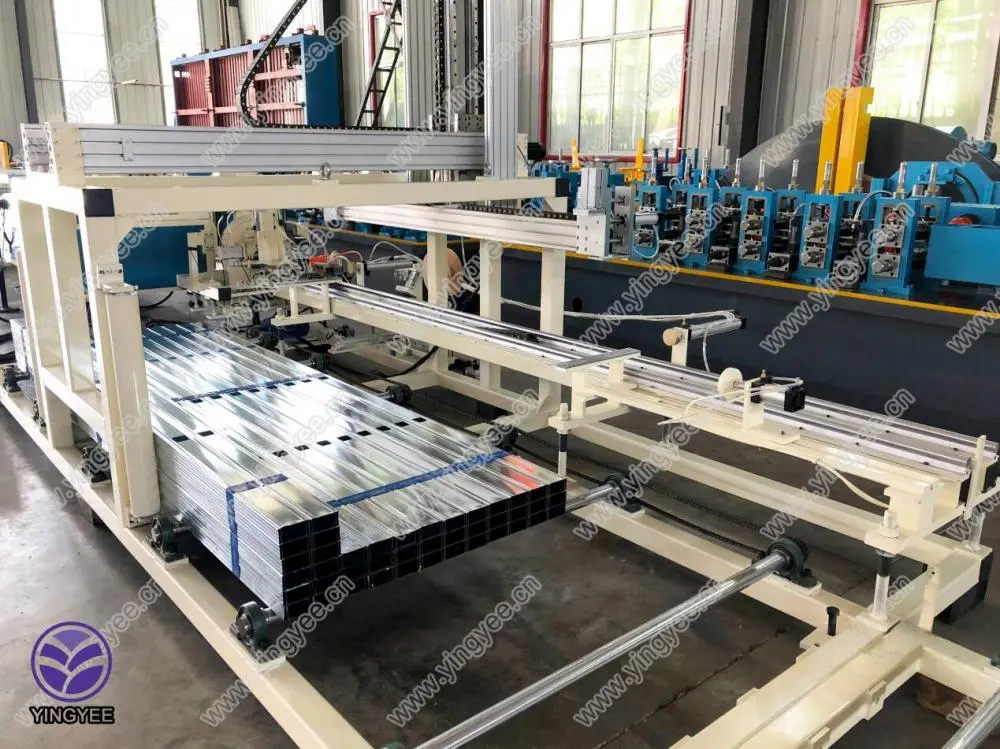
The Evolution and Significance of Drywall Forming Machines
In the construction industry, efficiency and precision are paramount. Among the various innovations that have streamlined construction processes, drywall forming machines stand out as pivotal tools for both residential and commercial projects. These machines have revolutionized how drywall is manufactured, delivering superior products with exceptional speed and quality.
Understanding Drywall Forming Machines
Drywall, also known as gypsum board or plasterboard, consists of a gypsum core sandwiched between two sheets of heavy paper or other materials. The drywall forming machine automates the production process of this building material, enabling manufacturers to produce large quantities with consistent quality and minimal waste. The primary components of these machines include the mixing system, forming system, pressing system, and cutting equipment.
The mixing system combines the gypsum powder with water and additives to create a slurry. This mixture is then fed into the forming system, where it is evenly spread and shaped into sheets. The pressing system applies even pressure to ensure uniform thickness and solidity. Finally, the cutting equipment segments the large sheets into standard-sized panels, making them ready for delivery to construction sites.
Benefits of Using Drywall Forming Machines
1. Efficiency and Speed One of the most significant advantages of drywall forming machines is their ability to produce large quantities of drywall quickly. This efficiency is vital in meeting the fast-paced demands of modern construction projects. Traditional methods of producing drywall were labor-intensive and time-consuming, often leading to delays. With automated machines, manufacturers can scale up production without compromising quality.
2. Consistency and Quality Control The precise control offered by modern drywall forming machines ensures that each sheet of drywall meets strict standards. Consistency in thickness and density translates to better performance in the field, reducing the likelihood of defects that can lead to costly repairs or material waste.

3. Sustainability Many manufacturers are focusing on sustainable practices, and drywall forming machines can contribute to this effort. By optimizing the use of materials and reducing waste during production, these machines help minimize the environmental impact of drywall manufacturing. Additionally, some systems integrate recycling processes to utilize scrap materials effectively.
4. Labor Cost Reduction Automation of the drywall production process reduces the dependency on manual labor, which not only lessens labor costs but also mitigates human errors. With fewer workers needed on the production line, businesses can allocate their resources and workforce more strategically.
The Future of Drywall Forming Technology
As technology continues to advance, the drywall forming machine is also evolving. Developments in artificial intelligence and machine learning are paving the way for more intelligent systems capable of predictive maintenance and real-time quality control. Such innovations may significantly enhance production efficiency and reliability.
Additionally, the integration of Internet of Things (IoT) technologies allows for better monitoring and management of production processes. Manufacturers can track machinery performance, adapt to fluctuating demands, and ensure optimal operation at all times.
Conclusion
In closing, drywall forming machines play an essential role in the construction industry, bringing forth innovations that enhance efficiency, consistency, and sustainability in drywall production. As technology advances, these machines will undoubtedly continue to evolve, shaping the future of construction further. The importance of such machinery cannot be overstated, as they are crucial to meeting the growing demand for high-quality building materials in an ever-changing market. By investing in and adopting these advanced machines, manufacturers position themselves at the forefront of the industry, ready to tackle the challenges of tomorrow.